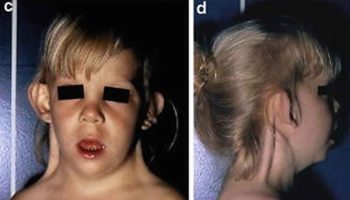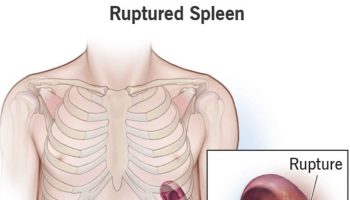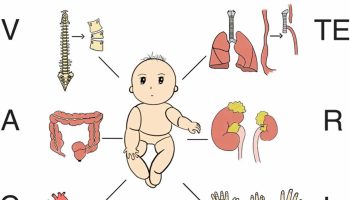Contents
What is dissociative fugue
Dissociative fugue is formerly called psychogenic fugue, is a psychiatric disorder characterized by amnesia coupled with sudden unexpected travel away from the individual’s usual surroundings and denial of all memory of his or her whereabouts during the period of wandering 1. People with dissociative fugue temporarily lose their sense of personal identity and impulsively wander away from their homes or places of work 2. They may travel far distances during the fugue, as far as several thousand miles 3. They may remain in the fugue state for a couple of days, several weeks or even months 4. When individuals return to their pre-dissociative states, events that occurred during the fugue are not remembered 2.
Dissociative fugue is one or more episodes of amnesia in which an individual cannot recall some or all of his or her past. Either the loss of one’s identity or the formation of a new identity may occur with sudden, unexpected, purposeful travel away from home.
Patients, having lost their customary identity, leave their family and job. A fugue may last from hours to months, occasionally longer. If the fugue is brief, they may appear simply to have missed some work or come home late. If the fugue lasts several days or longer, they may travel far from home, assume a new name and identity, and begin a new job, unaware of any change in their life.
Many fugues appear to represent disguised wish fulfillment or the only permissible way to escape from severe distress or embarrassment, especially for people with a rigid conscience. For example, a financially distressed executive leaves a hectic life and lives as a farm hand in the country.
During the fugue, patients may appear and act normal or only mildly confused. However, when the fugue ends, patients report suddenly finding themselves in the new situation with no memory of how they came to be there or what they have been doing. They often feel shame, discomfort, grief, and/or depression. Some are frightened, especially if they cannot remember what happened during the fugue. These manifestations may bring them to the attention of medical or legal authorities. Most people eventually recall their past identity and life, although recalling may be a lengthy process; a very few remember nothing or almost nothing about their past indefinitely.
Often, a fugue state is not diagnosed until patients abruptly return to their pre-fugue identity and are distressed to find themselves in unfamiliar circumstances. The diagnosis is usually made retrospectively, based on documentation of the circumstances before travel, the travel itself, and the establishment of an alternate life.
Dissociative fugue is one of a group of psychiatric conditions called dissociative disorders 1. Dissociative disorders are characterized by transient or chronic failures or disruptions of integration of consciousness, memory, perception, identity or emotion. Dissociative disorders include dissociative amnesia, dissociative fugue, depersonalization disorder, dissociative identity disorder and dissociative disorder not otherwise specified 5.
Dissociative fugue is a rare disorder that is infrequently reported and data available indicate a prevalence of 0.2% in the general population 6. The onset is often in adolescence or early adulthood 7. Onset is usually sudden 3 and often related to traumatic or stressful life events 2. Dissociative fugue has also been noted to be associated with a previous history of child abuse 8 and current severe distress 9. Other factors predisposing to dissociative reactions include neuropsychological cognitive dysfunctions 10 and genetic factors 11. Recovery is usually sudden 7 and often complete 2, although the fugue state may end gradually in some individuals 3. However, following recovery there is no amnesia for earlier life events before the dissociative fugue episode 9.
Alcohol, hallucinogens, marijuana, head trauma, brain tumors, dementia, hypertension, manic episode and schizophrenia may cause effects similar to dissociative fugue 3. It is therefore expedient that a differentiation be made between a dissociative fugue episode and dissociative fugue-like symptoms caused by a medical condition or psychological disorder. Dissociative fugue can comorbid with bipolar disorder, major depressive disorder, schizophrenia, post-traumatic stress disorder, substance-related disorders, panic disorder, anxiety disorders, eating disorders and somatoform disorders 2.
Dissociative fugue causes
Dissociative fugue is a state of mind wherein one’s entire personal identity is abandoned and no other reasonable explanation (substance abuse, medication, a medical condition) is available. Some causes of dissociative fugue include: extreme stress or trauma, accidents, reactions to natural disasters or the results of some form of sexual abuse during their childhood.
Dissociative fugue symptoms
Dissociative fugue often manifests as 12:
- Sudden, unexpected, purposeful travel away from home
- Bewildered wandering
Dissociative fugue specific symptoms include:
- The predominant disturbance is sudden, unexpected travel away from home or one’s customary place of work, with inability to recall one’s past.
- Confusion about personal identity or assumption of a new identity (partial or complete).
- The disturbance does not occur exclusively during the course of dissociative identity disorder and is not due to the direct physiological effects of a substance (e.g., a drug of abuse, a medication) or a general medical condition (e.g., temporal lobe epilepsy).
The symptoms cause clinically significant distress or impairment in social, occupational, or other important areas of functioning.
The length of a fugue may range from hours to weeks or months, occasionally longer. During the fugue, the person may appear normal and attract no attention. The person may assume a new name, identity, and domicile and may engage in complex social interactions. However, at some point, confusion about his identity or the return of the original identity may make the person aware of amnesia or cause distress.
A fugue in progress is rarely recognized. It is suspected when a person seems confused over his identity, puzzled about his past, or confrontational when his new identity or the absence of an identity is challenged. Sometimes the fugue cannot be diagnosed until the person abruptly returns to his pre-fugue identity and is distressed to find himself in unfamiliar circumstances. The diagnosis is usually made retroactively based on the history with documentation of the circumstances before travel, the travel itself, and the establishment of an alternate life. Although dissociative fugue can recur, patients with frequent apparent fugues usually have dissociative identity disorder.
Most fugues are brief and self-limited. Unless behavior has occurred before or during the fugue that has its own complications, impairment is usually mild and short-lived. If the fugue was prolonged and complications due to behavior before or during the fugue are significant, the person may have considerable difficulties–e.g., a soldier may be charged as a deserter, and a person who marries may have inadvertently become a bigamist.
In the rare case in which the person is still in the fugue, recovering information (possibly with help from law enforcement and social services personnel) about his true identity, figuring out why it was abandoned, and facilitating its restoration are important.
Dissociative fugue treatment
Treatment of dissociative fugue is by use of psychotherapy. Attempts are made to elicit stressors preceding the disorder 13, and psycho-education is given to both the patient and family. Efforts are made to reduce stressors that may precipitate another episode. However, if the patient is still in a fugue state, the first concern is to ensure the safety and well-being of the patient. As dissociative fugue is often comorbid with psychiatric disorders, drug treatments may be necessary for the latter.
- Igwe MN. Dissociative fugue symptoms in a 28-year-old male Nigerian medical student: a case report. J Med Case Rep. 2013;7:143. Published 2013 May 31. doi:10.1186/1752-1947-7-143 https://www.ncbi.nlm.nih.gov/pmc/articles/PMC3680202/[↩][↩]
- Gelder M, Harrison P, Cowen P. Shorter Oxford Textbook of Psychiatry. 5. New York: Oxford University Press; 2006.[↩][↩][↩][↩][↩]
- Coons PM. Psychogenic or dissociative fugue: a clinical investigation of five cases. Psychol Rep. 1999;84:881–886. doi: 10.2466/pr0.1999.84.3.881[↩][↩][↩][↩]
- Macleod AD. Posttraumatic stress disorder, dissociative fugue and a locator beacon. Aust N Z J Psychiatry. 1999;33:102–104. doi: 10.1046/j.1440-1614.1999.00514.x.[↩]
- American Psychiatric Association. Diagnostic and Statistical Manual of Mental Disorders (DSM-IV, Text Revision) Washington, DC: American Psychiatric Publishing; 2000.[↩]
- Davison GC, Neale JM. Abnormal Psychology With Cases. 8. New York: John Wiley & Sons; 2003.[↩]
- Moore DP. Handbook of Medical Psychiatry. St. Louis: Mosby-Year Book, Inc.; 1996.[↩][↩]
- Zlotnick C, Begin A, Shea MT, Pearlstein T, Simpson E, Costello E. The relationship between characteristics of sexual abuse and dissociative experiences. Compr Psychiatry. 1994;35(6):465–470. doi: 10.1016/0010-440X(94)90230-5[↩]
- Ahuja N. A Short Textbook of Psychiatry. New Delhi: Jaypee Brothers; 2006.[↩][↩]
- MacDonald K, MacDonald T. Peas, please: a case report and neuroscientific review of dissociative amnesia and fugue. J Trauma Dissociation. 2009;10(4):420–435. doi: 10.1080/15299730903143618[↩]
- Amrhein C, Hengmith S, Maragkos M, Hennig-Fast K. Neuropsychological characteristics of highly dissociative healthy individuals. J Trauma Dissociation. 2008;9(4):525–542. doi: 10.1080/15299730802226332.[↩]
- Dissociative Amnesia. https://www.merckmanuals.com/professional/psychiatric-disorders/dissociative-disorders/dissociative-amnesia[↩]
- Moore DP. Handbook of Medical Psychiatry. St. Louis: Mosby-Year Book, Inc.; 1996[↩]





